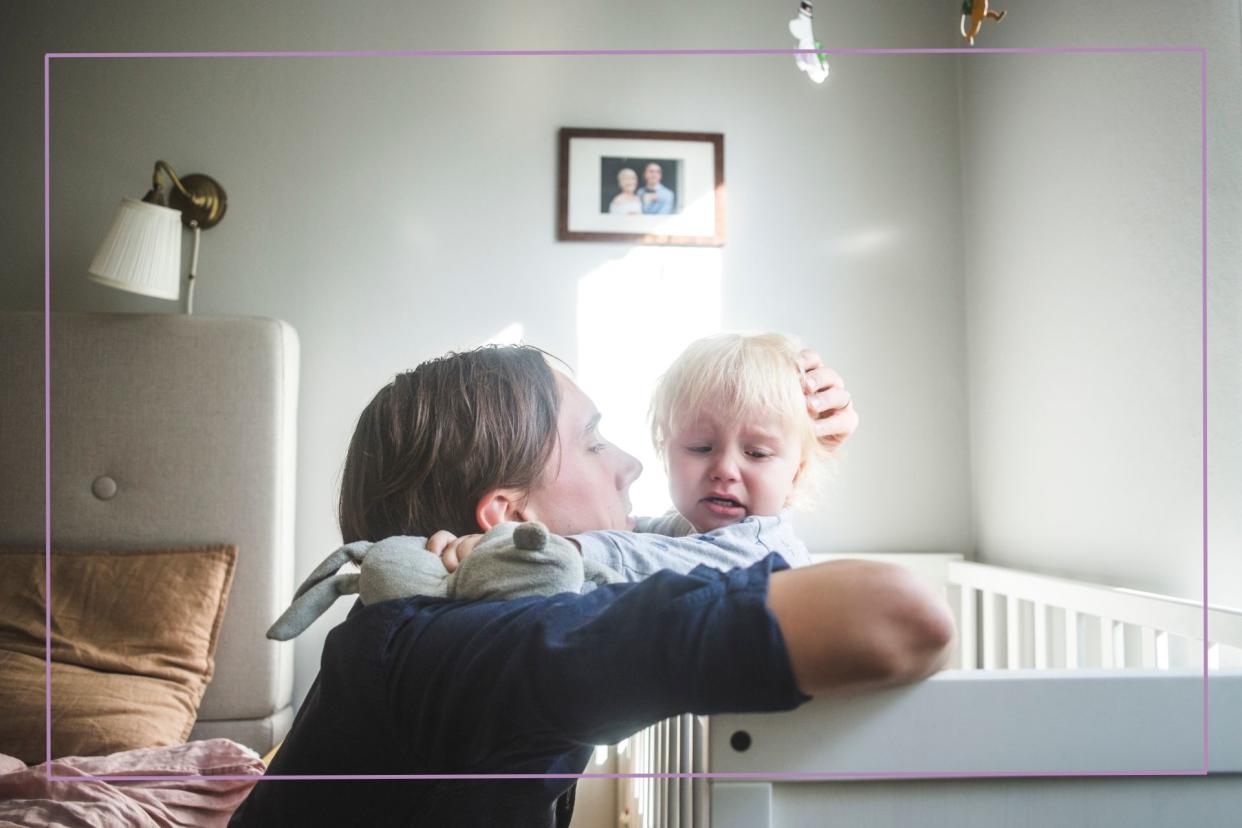Gentle parenting is hugely popular at the moment, but what is it and how can you try it with your own kids

Gentle parenting is a style that has gained traction with parents in the last five years or so. It's an alternative approach to bringing up children, centered around understanding, empathy, and respect.
Parenting styles are often widely debated, as they can range from the strict methods of tiger parents to the more relaxed approach of permissive parents and therapeutic parents, among others.
Gentle parenting is an evidence-based approach to raising happy, confident children. Adults who already practice gentle parenting know that it's all about encouraging collaboration as a family - working together to teach their children how to express their feelings in a socially acceptable. and age-appropriate way.
In this article we speak to the experts and look at the aspects of gentle parenting, and how it affects both adults and children.
What is gentle parenting?
It's a style of parenting without shame, blame, or punishment, it's a peaceful and positive approach that is different from the traditional authoritarian ‘old school’ parenting style. It is a parenting mindset, characterised by empathy, respect, understanding, and boundaries.
Often ‘gentle parenting’ is used interchangeably with the idea of ‘attachment parenting’, however, the two parenting styles are slightly different, but can be used alongside one another. Gentle parenting is a parenting style that promotes a relationship with your children based on willingness and choices, rather than demands and rules made by a parent. It teaches children to do what is good by using positivity and patience, rather than fear or punishment.
Popular childcare and parenting author Sarah Ockwell-Smith is an advocate of gentle parenting and author of The Gentle Parenting Book (available from Amazon, £5.99)
Sarah says: "Gentle parenting isn’t really about using specific methods. It’s about ethos and completely changing the way you think. It’s more a way of being than a way of doing. Approaching any parenting situations with empathy for the child and trying to understand the reasonings behind their behaviour, working together to change it positively and accepting what cannot be changed."
A post shared by Sarah Ockwell-Smith (@sarahockwellsmith)
A photo posted by on
How do I use gentle parenting?
Parents should try to follow the four key principles of gentle parenting:
Empathy - Parenting while always being aware of your child’s feelings and needs. Difficult parenting situations typically occur when a child is misunderstood. Rather than dismissing a child as ‘manipulative’ or ‘naughty’, a parent should instead try to understand the cause of the child’s misbehaviour. By addressing the root cause of the bad behaviour, a parent can eliminate this occurring in the future.
Respect - Respecting your child as an adult is another key characteristic of gentle parenting. Usually, parents feel the need to set rules and demands – telling a child what to do and what not to do. However, gentle parenting requires respect to be earned through parents respecting their child’s feelings and personalities, and over time a child will learn to respect their parent.

Understanding - The gentle parenting technique understands that children as not fully developed and therefore do not have the same control over their behaviour. With this in mind, parents need to change their expectations of what is ‘normal’ or bad behaviour. This is important when a child is having a temper tantrum, or having trouble sleeping. This understanding also requires a parent to understand their own behaviour. For example, when they feel the need to be aggressive towards their child by shouting or raising their voice. Modifying our own behaviour is key to being a role model for children to follow. Sarah says: ‘Remember, we are our child’s greatest teacher. Stop and ask yourself if how you’re behaving is really what you want to teach your child – e.g. if they have done something inappropriate do you want to shout at them or punish them (teaching them that yelling is how to resolve situations) or do you want to teach them how to stay calm and problem solve?’
Boundaries - There is a myth that gentle parenting is the same as permissive parenting – allowing children to get away with anything. However, boundaries play a crucial role. Boundaries are not about endless lists of rules or regulations – rather boundaries are about teaching children a better way of doing things. Sarah says: ‘Really boundaries are just a set of family rules. It’s important to decide these mindfully, in conversation with your partner or co-parent. Also involving others who will care for the child. It’s better to go with fewer rules, but ones that really matter to you and ones you know you will stick to, than have an exhaustive and overwhelming list that nobody will stick to.’
Does gentle parenting work?
Sarah says: ‘Yes - of course it works. In fact, if you look at every piece of psychological research ever done into the effectiveness of different parenting methods, there is always one style that comes out on top. That is authoritative parenting - authoritative is essentially the technical term for gentle parenting.
It may not work in the way many expect though. We expect quick fixes in our society today and parenting just doesn’t work like that, you’re raising human beings, not building flat pack furniture. You just don’t get results in an afternoon.’
Are there any drawbacks to gentle parenting?
Sarah says: ‘It’s hard work! Lots of people think being a gentle parent means being permissive and letting your little darlings get away with anything. That isn’t true - families will have many rules and boundaries and well-planned routines. It takes a lot of effort, both physically and emotionally and if you don’t take care of your own needs, it can be easy to burn out.
The other potential drawback is gentle parenting requires parents to delve into their own upbringings. To understand why they behave in the way they do and to identify and work with anything that triggers them from their past. In a way, it’s like self-directed therapy." Read how our family editor, Stephanie Lowe really feels about the decision to gentle parent her son.
Parenting is the hardest job in the world, it kicks off with Matrescence and then once you've made it through maternity leave and stared down the barrel of post-natal depression you then have explaining the mental load to contend with.

 Yahoo News
Yahoo News 
